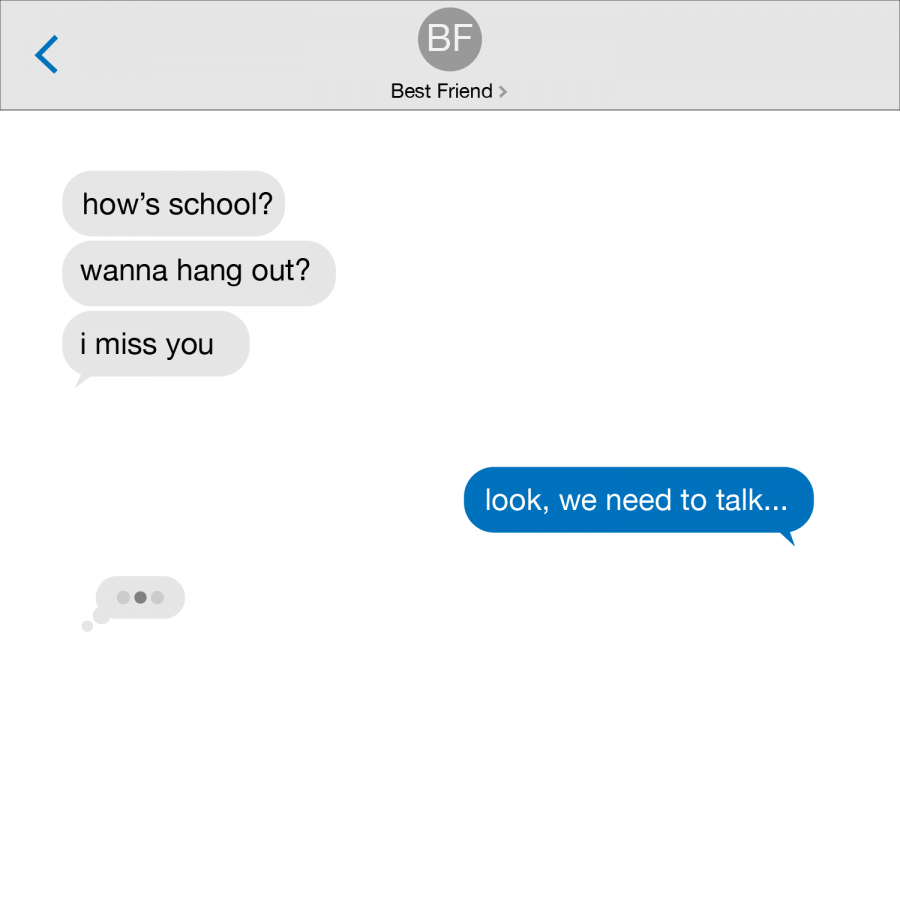Friendships can experience heartbreak, too
Jan 24, 2019
By the end of freshman year, the same set of faces were consistently plastered across my camera roll, occupying about 12 gigabytes of storage space on my iPhone. I thought I had found my people.
After all, you probably ended up attending a particular university because you were a good “fit” — not just in the academic sense, but also because through your application you were perceived as someone who could blend well within the other 30,000 thousand individuals who matched your intellect and could challenge you to be a better version of yourself.
Nevertheless, friendship breakups happen, and they can hurt just as much as romantic breakups do. Sometimes, the cause is unknown or undefined, leaving you to question if there was something about your behavior you could have changed to sustain the friendship. Other times, the cause is well-defined and yet, the anger and hurt cannot fully outweigh all the memories and time spent with that person. All in all, it sucks that friends can end up as strangers again.
The worst part is these breakups tend to occur at a later point in the friendship, one which requires time to reach. It is often long-term friendships that bear the brunt of these breakups. Drifting apart without a dramatic ending usually means you weren’t that close to begin with. People will show their true colors when people get too comfortable with one another; this almost always results in incompatibility that was once unimaginable between each other.
Romance aside, breaking up still proves difficult in that no matter how gentle an approach, it doesn’t guarantee that bridges will remain intact, or that you’re free of an enemy for life. Not all relationships last forever, and it is unlikely you’ll go through the breakup unscathed when it comes to parting from a friend.
Get The Daily Illini in your inbox!
As much as it would be nice for friendships to be immune to complex arguments and rough endings, it is important for friends to be honest with one another, no matter how brutal, when resolving conflict or confronting one another. To quote David Shrigley: “Weak messages create bad situations.” Sugarcoating how you feel doesn’t do anyone any favors. Out of respect for one another, it would be ideal if you could both walk away with a clear understanding as to why your friendship ended the way it did.
But sometimes it’s not that easy.
You may be in a situation where explaining yourself isn’t a clear option. For example, you may evaluate your friendship and decide that nothing can save it.
However, I have learned the hard way that shying away from tough, awkward subjects and leaving your friend to infer from ignored texts and bad moods is not a good move. Call it the silent killer of friendship — it creates a chain reaction of all things bad: assuming, overthinking and jumping to conclusions. It may not seem pleasant to resort to confrontation, but it may just save your friendship or allow you to walk away with peace of mind, knowing that you both tried to understand each other.
As with all breakups, it can be difficult to find a suitable friend to fill the now empty void. Of course, moving on is no easy feat, but one that is necessary and very much a part of growing pains.
Although an unpleasant truth, people come and go in our lives, for a myriad of reasons impossible for one to fully comprehend. That’s just the way life goes.
Kimberly is a junior in Engineering.






